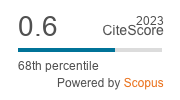Women’s Teacher Education within Slovenian and Croatian Regions of Austria-Hungary - comparative analysis
DOI:
https://doi.org/10.22586/csp.v51i2.8566Keywords:
Austria-Hungary; women’s teacher education; women’s school legislation; women’s teacher training colleges; Slovenian and Croatian landsAbstract
This article is the first comparative study on the education of primary college women teachers in Slovenian and Croatian lands of Austria-Hungary through legislation and the organisation of women’s teacher training colleges. The study consists of a historical comparative analysis covering the period from the emergence of the dualist Austria-Hungary (1867) until World War I (1914). During the period covered in this article, many changes were implemented in women’s teacher education. Before the year 1869, women who wanted to become teachers acquired the necessary knowledge as nuns in monasteries, in private girls’ schools, or at home. The Austrian school legislation of 1869 had a quantitative and qualitative influence on the development and organisation of women’s teacher training colleges and on the quality of women’s teacher education. Women teachers became state employees. Analysis of the legislation showed differences between the syllabuses of women’s teacher training colleges in Slovenian and Croatian lands. The syllabuses were adapted to the requirements of individual lands. A comparison of their activities also shows differences in development, number, and organisation. New state women’s teacher training colleges and private ones with public accreditation appeared. In Slovenian lands, under the Austrian school legislation, the development of four-year women’s teacher training colleges was somewhat faster than in Croatian lands. The comparison shows that private women’s teacher training colleges were predominant and women’s teacher education became more standardised and professionalised both in Slovenian and Croatian lands.
Downloads
Published
How to Cite
Issue
Section
License
Copyright (c) 2019 authors and journal

This work is licensed under a Creative Commons Attribution-NonCommercial 4.0 International License.
Copyright holders are the publisher Croatian Institute of History and the authors. Journal of Contemporary History is an Open Access journal. Users are allowed to read, download, copy, redistribute, print, search and link to material, and alter, transform, or build upon the material, or use them for any other lawful purpose as long as they attribute the source in an appropriate manner according to the Creative Commons licence CC BY-NC. The papers published in Journal of Contemporary History can be deposited and self-archived in the institutional and thematic repositories providing the link to the journal's web pages and HRČAK. Journal does not charge article processing charges (APC). The editors assume no responsibility for statements of fact or opinion made by contributors.




